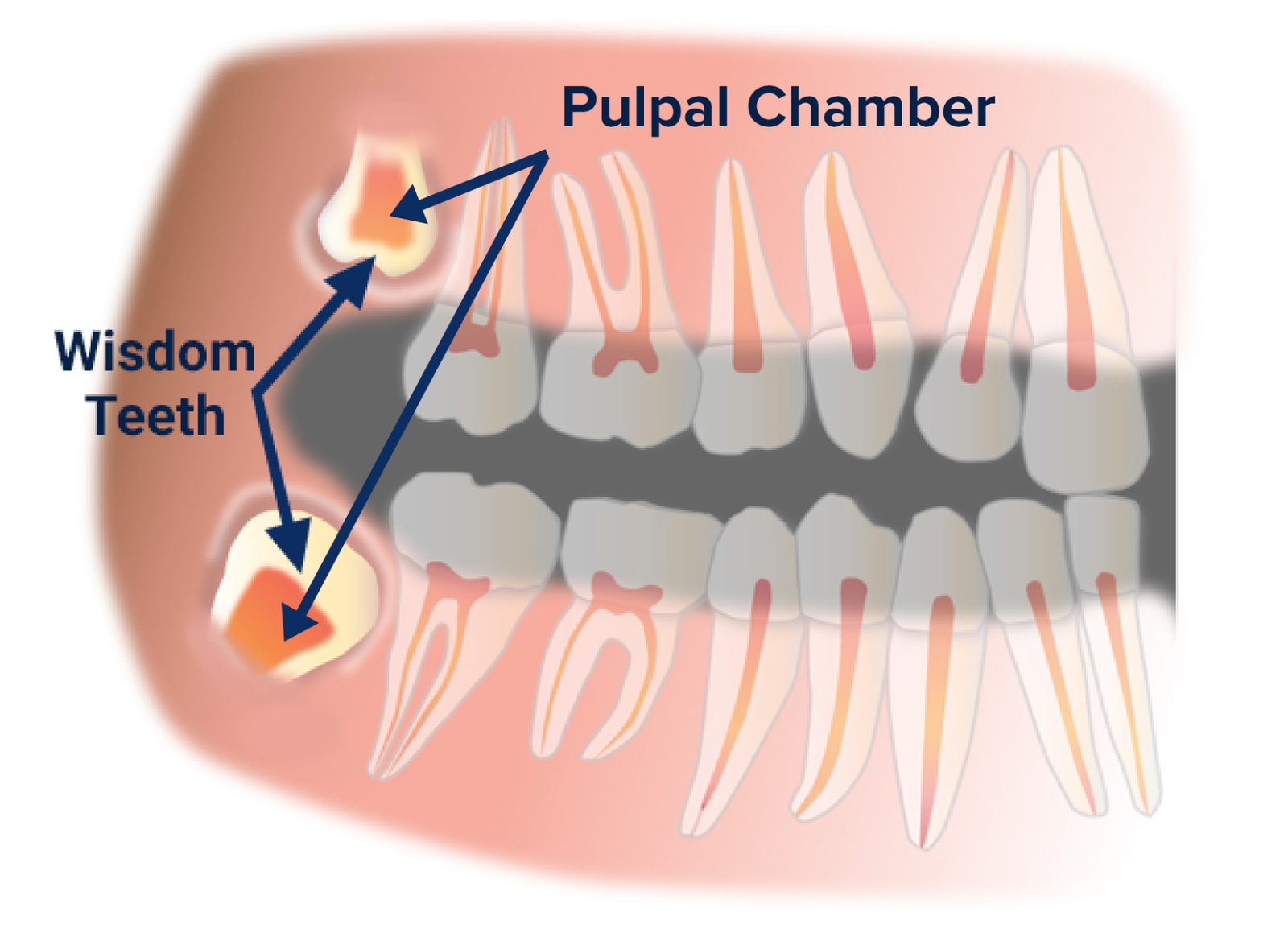Wisdom teeth stem cells are emerging as a powerful resource in the field of regenerative medicine. Found inside the dental pulp of extracted wisdom teeth, these stem cells have shown great promise for treating a variety of diseases and injuries. Unlike embryonic stem cells, which raise ethical concerns, wisdom teeth stem cells come from tissue that would otherwise be discarded. This makes them an accessible and practical source for future medical therapies.
The dental pulp inside wisdom teeth contains mesenchymal stem cells, a type of multipotent stem cell capable of developing into many different types of tissue. These cells can become neurons, bone, cartilage, and muscle when placed in the right laboratory conditions. Research has shown that stem cells from wisdom teeth are especially valuable because they maintain strong regenerative properties, particularly when collected from young adults during routine tooth extractions. This painless and simple procedure makes it possible to collect living stem cells without any additional invasive methods.
One of the most exciting applications of wisdom teeth stem cells is in the treatment of neurological disorders. Studies involving animal models of Parkinson’s disease demonstrated that these stem cells could replace damaged dopamine-producing neurons, leading to improvements in motor function. In Alzheimer’s disease research, the same stem cells helped protect brain connections, reduce inflammation, and slow the buildup of harmful proteins linked to memory loss. Laboratory experiments have even revealed that these cells can fire electrical signals like real neurons, a critical feature for restoring nerve cell communication in the brain.
Beyond the brain, wisdom teeth stem cells have shown potential in heart disease treatment. Scientists have used secretions from these stem cells to improve heart function in animals with damaged cardiac tissue. This raises the possibility of developing future therapies that could regenerate heart tissue using a patient’s own dental stem cells, offering a personalized approach to cardiac repair. Additionally, these stem cells can grow bone tissue faster than traditional bone marrow-derived cells, making them useful for repairing the jaw after surgery or injury.
The ability of wisdom teeth stem cells to form cartilage-like tissue in the lab also opens new avenues for treating joint problems such as arthritis. Cartilage is a strong tissue found in knees and hips, and damage to it can cause chronic pain and limited mobility. By using these stem cells, scientists hope to develop better therapies that encourage cartilage regeneration, potentially improving the lives of people suffering from joint injuries or degenerative conditions.
Once a wisdom tooth is extracted, the process of collecting and preserving stem cells is quick and efficient. The tooth is placed in a sterile container and shipped on dry ice to a laboratory, where the dental pulp is isolated and the stem cells are extracted. These cells are then frozen and stored in ultra-cold freezers for potential future use. Several companies now provide kits that make it easy for patients to preserve their stem cells by ensuring the cells remain alive during transport.
Using a patient’s own stem cells offers several benefits. Since the cells come from the individual, the risk of immune rejection is much lower, speeding up treatment and reducing complications. There is also no need to find a donor match, which can be a lengthy process in other types of stem cell therapy. However, while the potential is significant, large clinical studies are still underway to confirm the safety and effectiveness of treatments involving wisdom teeth stem cells.
Cost and accessibility remain challenges. Stem cell banking services can be expensive, limiting availability for some people. Experts suggest that public storage banks or insurance coverage could help make this innovative technology more widely accessible. As research progresses and prices fall, saving wisdom teeth for stem cell therapy could become a routine part of dental care for many individuals.
The use of wisdom teeth stem cells represents a new frontier in medical science. With ongoing studies and advances in technology, these cells may soon provide treatments for brain diseases, heart conditions, bone repair, and joint health. People who have their wisdom teeth removed may want to consider preserving these valuable cells, as they could play an important role in future health care breakthroughs.







